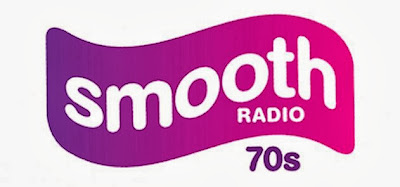 |
| The legendary Music Power logo. Credit: This is ILR. |
The station was quite frankly the only outlet for new pop music in London as Radio 1 was until 1987 stuck on medium wave.
Capital in the early days mixed speech, such as drama with specialist music shows and the latest chart music with now legendary presenters such as Kenny Everett, Dave Cash, Roger Scott, Peter Young, Graham Dene and Michael Aspel.
The station became more music intensive in the 80s with the 'Music Power' branding which gave fresh new presenters an outlet on the premier ILR of the time. Mick Brown, Pat Sharp, Jon Sachs, Richard Allinson, Neil Fox, David Jensen (formerly of Radio 1 and Luxembourg) provided a tighter formatted chart intensive sound.
Chris Tarrant joined after years of presenting children's tv from Birmingham on ATV and Central. He initially joined in 1984 and moved to breakfast in 1987 joined by Kara Noble as his sidekick, alongside flying eye travel presenter Russ Kane and newsreader Howard Hughes.
His breakfast show added listeners and was the most listened to commercial radio morning show in the London market. CT as he was also called on the station left in 2004 for Johnny Vaughan in an attempt to bring younger listeners to the station.
Capital were also visible at events across London, from discos in the 70s, to the big budget roadshows at Alexandra Palace and Crystal Palace in the 80s and early 90s, to the more recent Balls at the O2 in Greenwich.
What made Capital special was the sense of comradeship from the presenting team, the heavy London centricity and the interactivity with the listeners in the pre-social media era.
Capital's charity Help a London Child raised millions of pounds for children's organisations through their Easter weekend radiothons. This was an opportunity for presenters who'd never work together before to co-present. The format was simple, listeners would pledge money to hear tracks on the playlist and get a dedication, alongside a premium product auction. The charity still continues to this day with the auction format on LBC 97.3.
With the increase of radio stations, Capital no longer had a monopoly of music radio and went through various changes including splitting the FM and AM frequencies, the FM service continuing the 'Music Power' tight formatted FM service, while AM relaunched as the classic hits format Capital Gold, which included some heritage presenters from the 1970s era of Capital Radio.
New radio services which targeted Capital's audience were launched in the 1990s such as Heart and Kiss FM which eventually dented Capital's share. This led to drastic changes to Capital FM's format in the noughties, however it has returned to being a hit music station, although as part of a national network of Capital stations, which has lost some of the station's charm of London centricity.
However Capital, like LBC has survived for the last 40 years and is still playing the hits.



